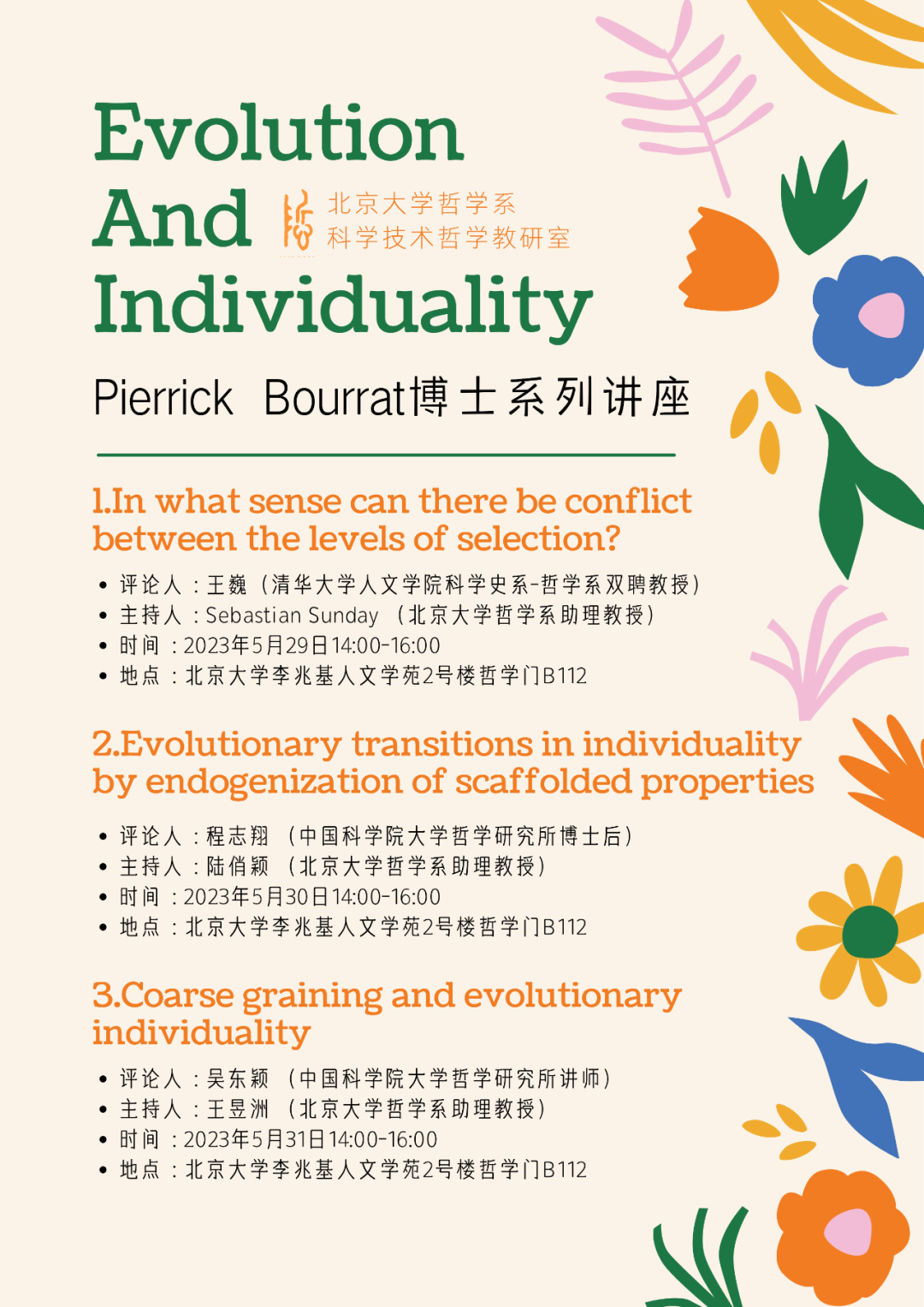Speaker: Pierrick Bourrat
01 In what sense can there be conflict between the levels of selection?
The idea of evolutionary conflict is a staple of evolutionary biology. Naturally, it is often used in the context of multilevel selection and evolutionary transition in individuality or more generally in discussions involving more than one level (e.g., an organism and its genes). In this talk, I distinguish several possible meanings for the idea of evolutionary conflict in a multilevel context. I argue that one of these meanings is illegitimate or at best metaphorical.
02 Evolutionary transitions in individuality by endogenization of scaffolded properties
The hierarchy of life is the result of a succession of evolutionary transitions in individuality (ETIs). During an ETI, individuals at a particular level of organization interact in such a way as to produce larger-level entities that become individuals in their own right. These new individuals are defined by their capacity to exhibit Darwinian properties of variation, differences in fitness, and heredity. One difficulty in accounting for ETIs is articulating how these properties are acquired at a higher level from the lower ones. Collaborators and I recently proposed the ‘ecological scaffolding’ model in which imposing an ecological scaffold (that is, a structure in the environment) on lower-level entities initiates an ETI. In this talk, I present a new model that extends this work. Within this new model, I propose a mechanism of scaffold endogenization, demonstrating that collectives can become resilient to the ecological scaffold being removed. This type of resilience is not observed in the ecological scaffolding model. However, classically, a biological individual would be regarded as an entity capable of withstanding environmental changes. Thus, the new model proposed here represents a step towards a more complete explanation for ETIs.
3 Coarse graining and evolutionary individuality
The topic of biological individuality has received much philosophical attention in the last fifteen years or so. Despite this attention, explaining the emergence of individuality in the process of evolution remains a challenge—it faces the difficulty of characterizing adequately what "emergence" amounts to. In this talk, I present a pragmatic account of individuality in which I take up this challenge. Following this account, individuals that emerge from an evolutionary transition in individuality are coarse-grained entities—that is, entities that are summaries of lower-level evolutionary processes. After having presented the concept of coarse-graining, I show that although this account may prima facie appear to ultimately rely on epistemic considerations, I argue that it can be used to vindicate the emergence of individuals in a quasi-ontological sense. To this end, I discuss a recent account of evolutionary transitions in individuality proposed by Godfrey-Smith and Kerr (2013) in which transitions in individuality are represented through several stages, each with an accompanying model. I focus on the transition to the final stage where higher-level entities are ascribed a fitness parameter—while they were not in the previous stage. In light of my account, I provide some justification for why such a change in parameters is necessary and cannot be dismissed as merely epistemic.
Source: Department of Philosophy
